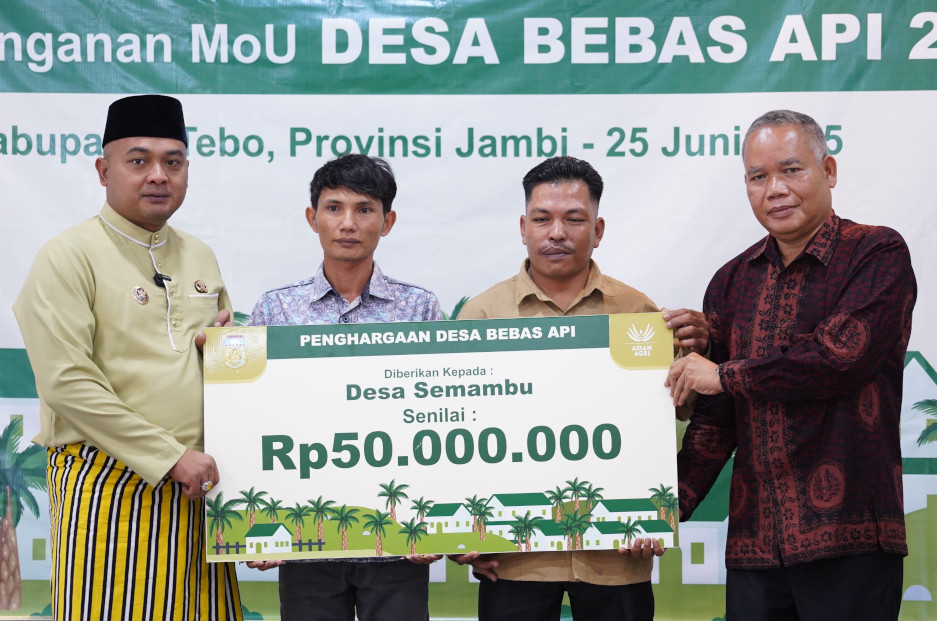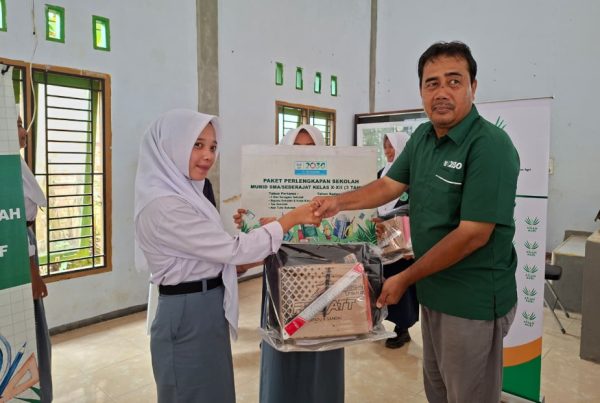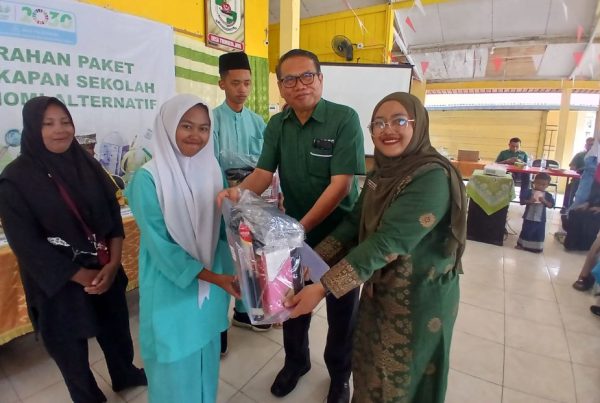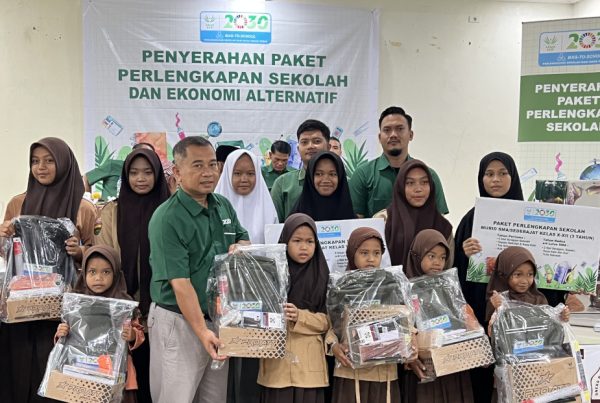Jambi, 25 June 2025 — Asian Agri reaffirmed its commitment to preventing forest and land fires by presenting the 2024–2025 Fire-Free Village Program (FFVP) Awards and signing a memorandum of understanding for the 2025–2026 program.
The ceremony was held at the regent’s official residence in Tebo, Jambi, and was attended by village representatives, local government officials, village supervisory non-commissioned officers (Babinsa), community police officers (Bhabinkamtibmas) and members of the Community Fire Awareness Group/ Masyarakat Peduli Api (MPA).
In his remarks, Asian Agri SSL Manager Liharman Purba emphasized that the FFVP reflects the company’s strong commitment to collaborative fire prevention efforts. “We believe forest and land fire prevention cannot be achieved by acting alone. It requires long-term collaboration and commitment between companies, local communities, and all stakeholders. The Fire-Free Village program embodies that spirit,” he said.
He also explained that Asian Agri presents awards to villages that successfully remain fire-free as a tangible form of appreciation. “We provide incentives of up to Rp100 million for villages that manage to stay completely free of fire for an entire year,” he said. “For those that remain committed but experience a minor incident affecting less than one hectare, we still offer Rp50 million in recognition. These incentives can be used for village development and community empowerment.”
Semambu Village was one of the recipients of the 2024 Fire-Free Village Program award. The village received an incentive of Rp50 million for its strong commitment to fire prevention and maintaining a fire-free environment throughout the year.
Tebo Regent Agus Rubiyanto expressed his appreciation for Asian Agri’s role in supporting community-based fire prevention efforts. “We appreciate PT Rigunas Agri Utama – Asian Agri for its initiative and continued commitment to the Fire-Free Village program. This initiative has proven effective in reducing fire incidents while also improving the welfare of rural communities,” he said.
The regent also called on all levels of the community, from the village leaders to residents, to take an active role in preventing fires and preserving the environment for the long term. “I urge all village heads and residents to become pioneers of change,” the regent added. “Let us reaffirm our commitment not to clear land by burning and make this program a collective movement grounded in awareness and shared responsibility.”
As a symbol of cross-sector collaboration, Asian Agri presented plaques of appreciation to the Tebo Regent, Babinsa, and Bhabinkamtibmas for their contributions and dedication to protecting the environment in Tebo Regency.
The Fire-Free Village program is part of the Asian Agri’s long-term initiative to help rural communities build resilience against fire risks. Through education, training and ongoing support, the program fosters a community-based culture of preparedness.
To ensure the program’s continuity, Asian Agri signed a memorandum of understanding for the 2025–2026 implementation of the Fire-Free Village initiative with its partner villages across operational areas. The agreement includes advanced training for community fire response teams, the provision of early detection and firefighting tools, a community-based hotspot reporting system and performance-based incentives.
Launched in 2016, the Fire-Free Village program supports Asian Agri’s “no burn” policy, which has been in place since 1994. The company works closely with Manggala Agni, the local military command (Danramil), police and regional governments to implement an integrated and sustained fire prevention strategy.
About Asian Agri
Founded in 1979, Asian Agri is one of Indonesia’s foremost companies in crude palm oil production, managing over 100,000 hectares of oil palm plantations and employing over 20,000 people.
As a pioneer of the Indonesian Government’s Smallholder Transmigration Core Plantation Programme (PIR-Trans), Asian Agri has partnered with 30,000 scheme smallholders in Riau and Jambi, who collectively manage 60,000 hectares of oil palm plantations. The company also fosters partnerships with independent smallholders to enhance their welfare and drive socio-economic growth.
Committed to sustainable practices, Asian Agri upholds a zero-burning policy and implements plantation best management practices to help smallholders boost productivity, increase crop yields, and improve supply chain traceability while supporting their journey towards certification. Asian Agri’s mills leveraged advanced technology and self-generated green energy to minimize greenhouse gas emissions.
Asian Agri’s plantations, as along with their scheme smallholder plantations, are full Roundtable on Sustainable Palm Oil (RSPO) and International Sustainability & Carbon Certification (ISCC) certified, underscoring the company’s commitment to responsible and sustainable palm oil production.
Please visit Asian Agri’s website for more information and media inquiries may be directed to:
Corporate Communication, Asian Agri
E-mail: communications@asianagri.com





